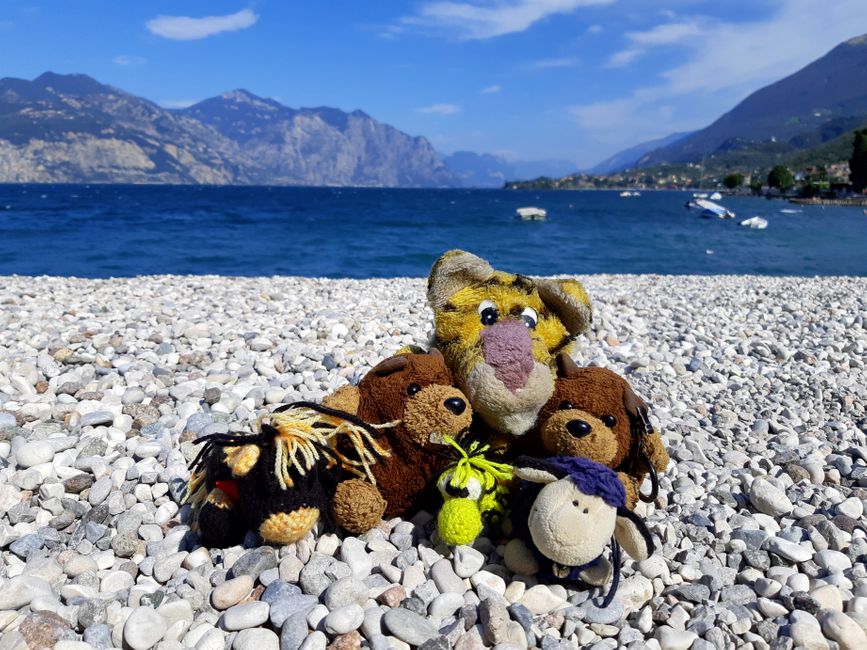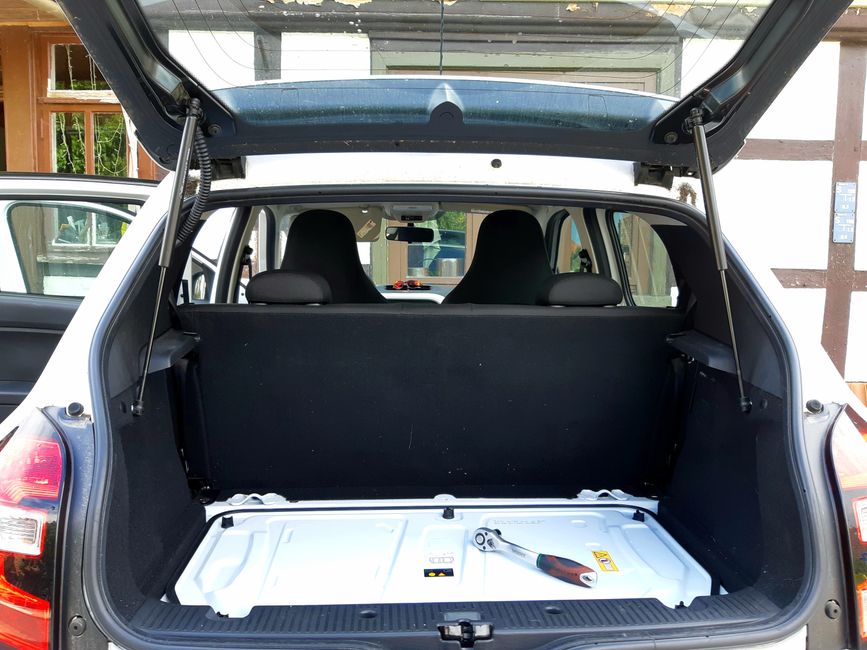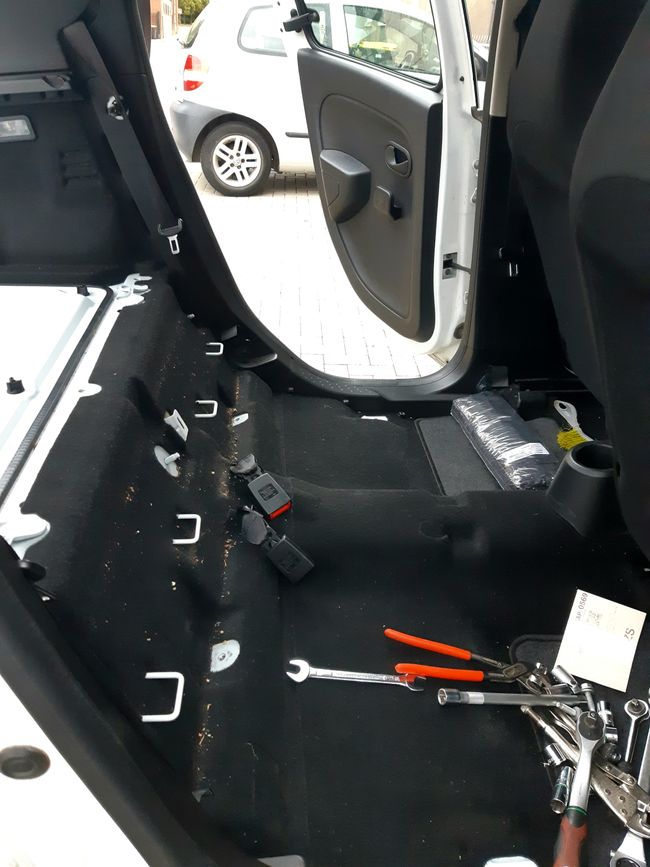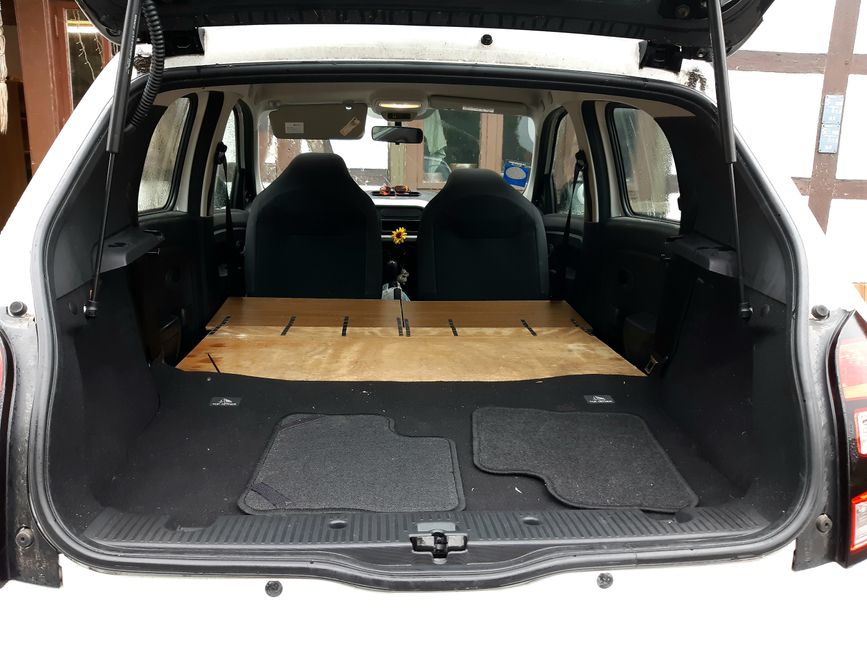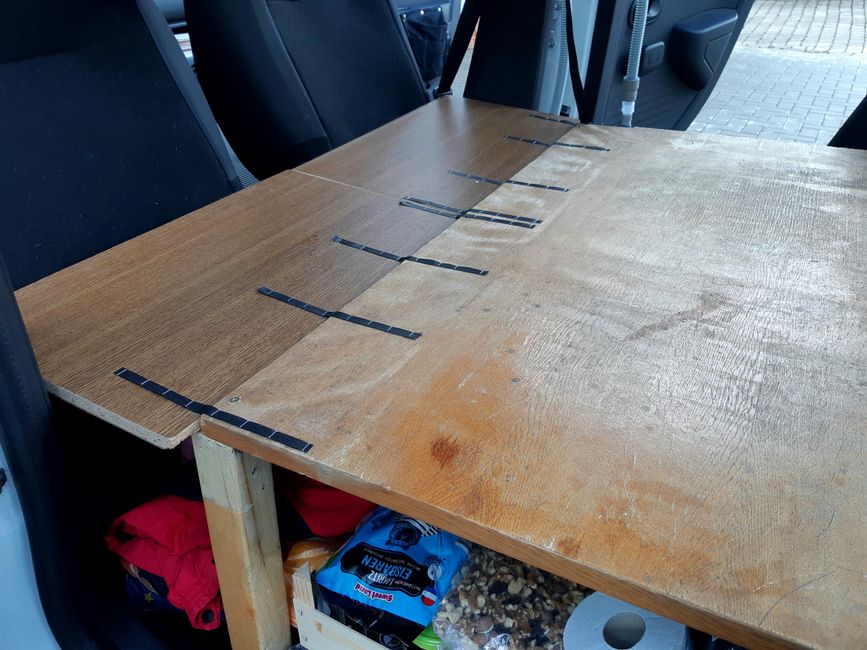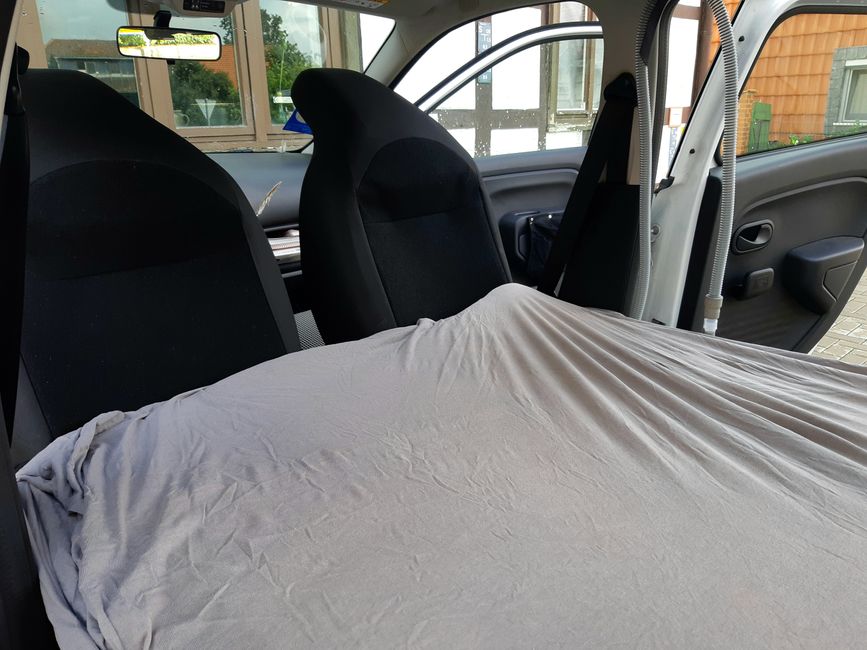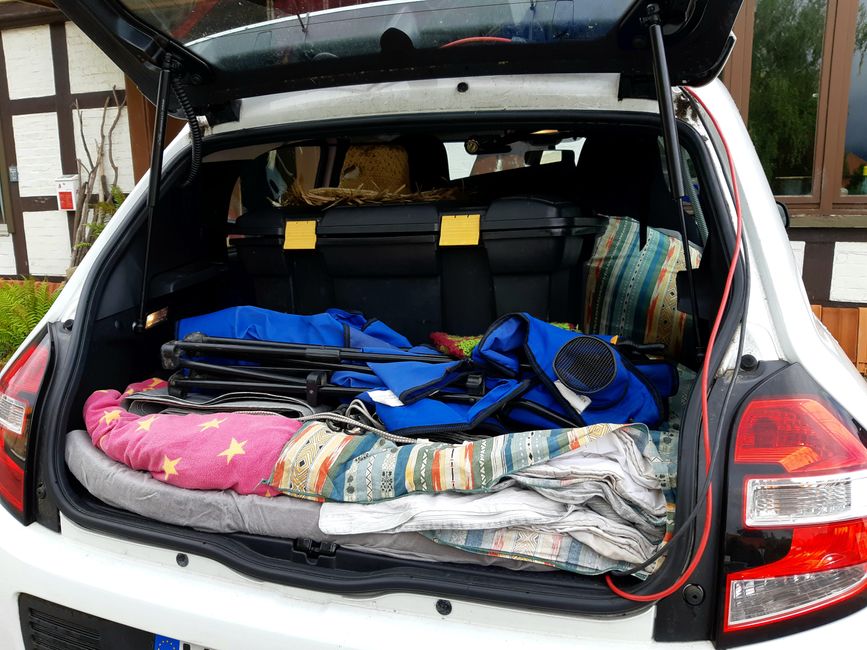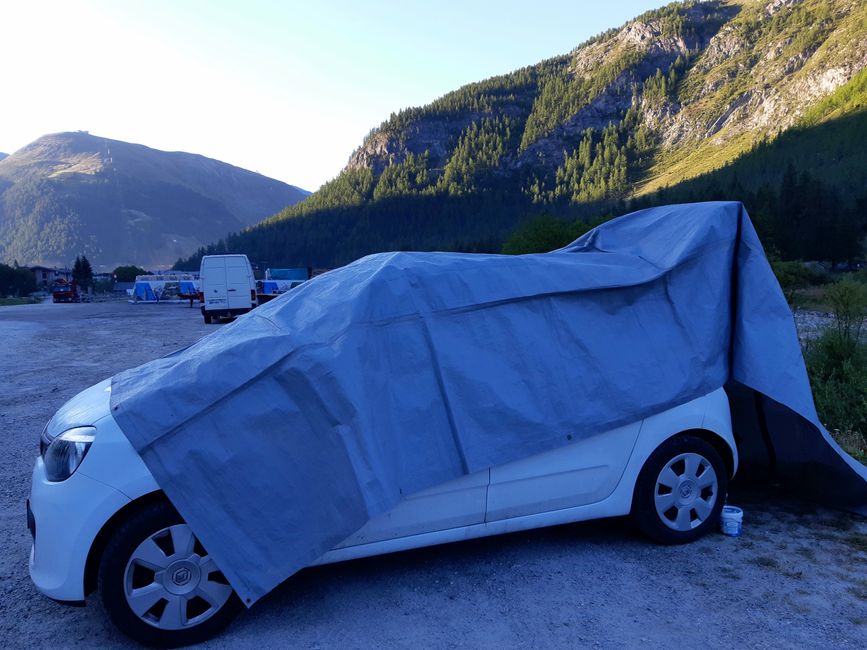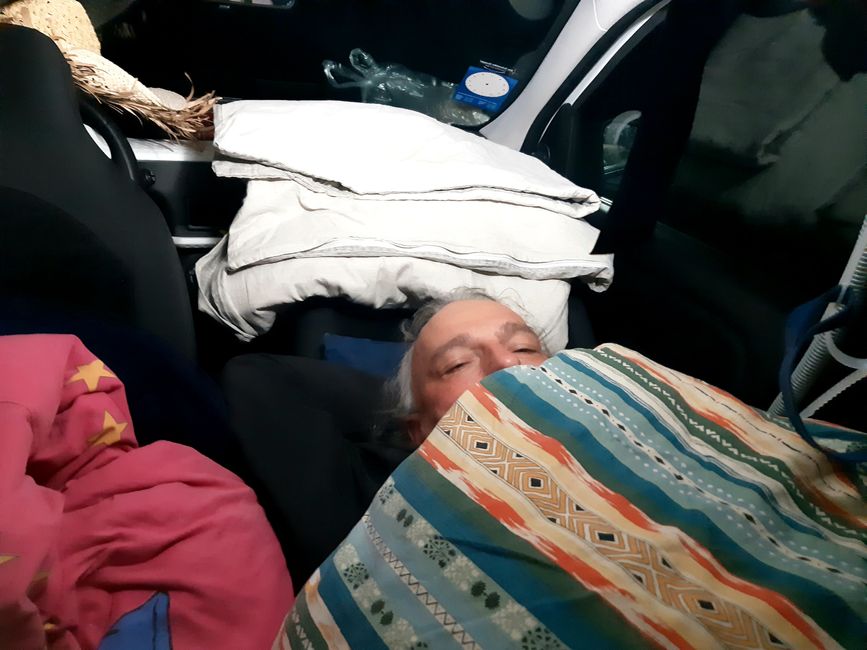Twingo-Camping - 2.0
प्रकाशित: 07.09.2021
समाचार पत्रिका के लिए सदस्यता लें
What do you do when your motorhome breaks down three days before your vacation?
No, this is not a completely new situation for us, I still shed a few crocodile tears and then compare prices for camper rentals, AirBnBs, houseboats, and flights.
Meanwhile, Zappa inspects the little Twingo and informs me that we will be taking my car for the trip. Remove the rear seat, install the bed, add power on top, reduce luggage, and off we go on the tour!
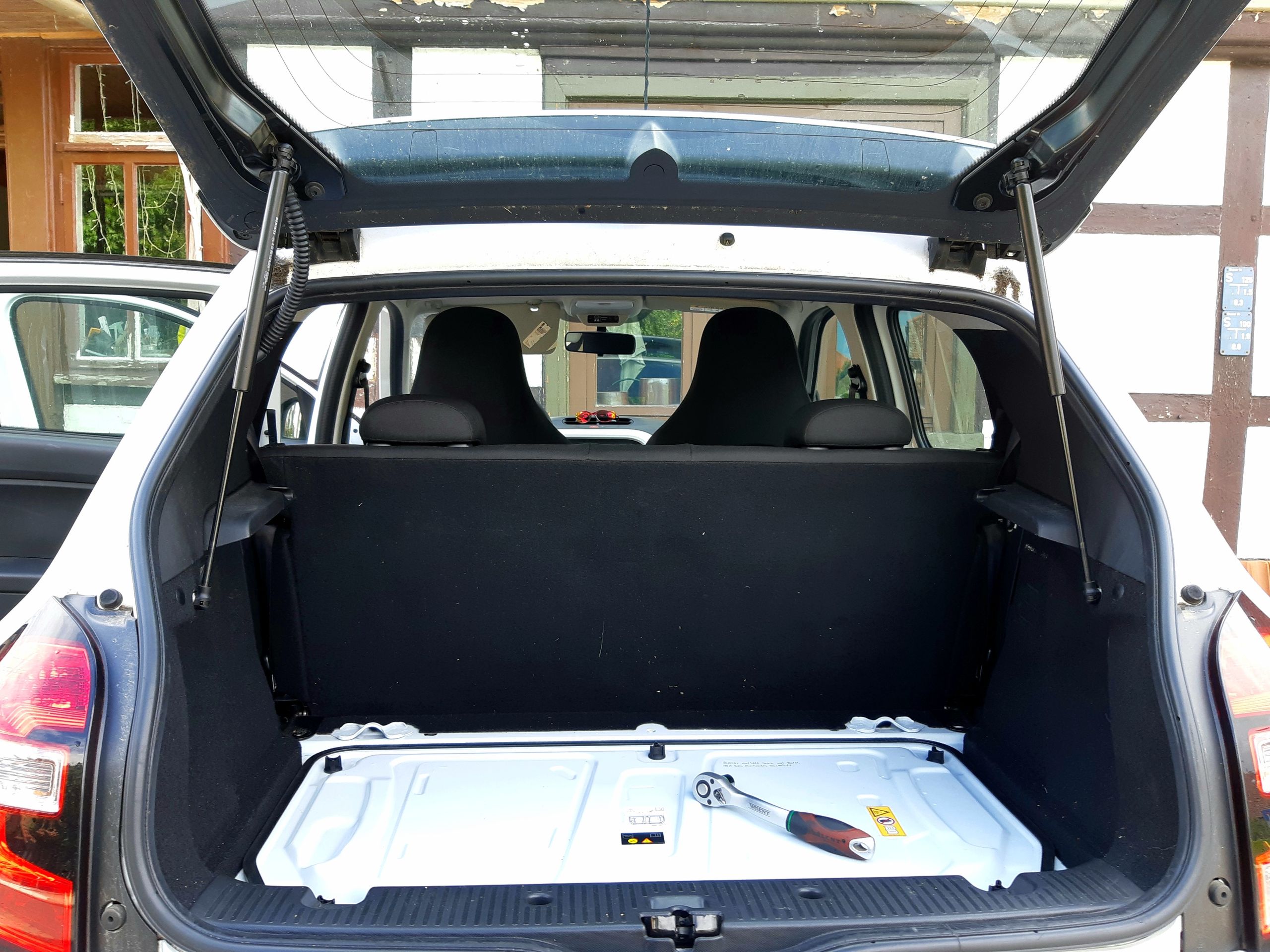
Removing the rear seat takes five hours because two screws are cunningly hidden and cannot be unscrewed. There is no suitable tool to be found, and that means something when it comes to Zappa! Even a trip to the nearest hardware store brings no solution.
I disappear and compare prices. After three hours, miraculously, the seat surface is removed despite the troublesome screws, but the screws of the backrest are protected by a cover plate, the removal of which is unique and irreparable.

At this point, I have consulted all price comparison websites and am on the verge of booking a cruise.
It is foreseeable that today, contrary to all plans, we will not go on a big tour, so I'll make us something to eat.
Late in the evening, the backrest of the rear seat is also removed!
Zappa did not inform me of his secret, maybe he will reveal to you how he managed this miracle.
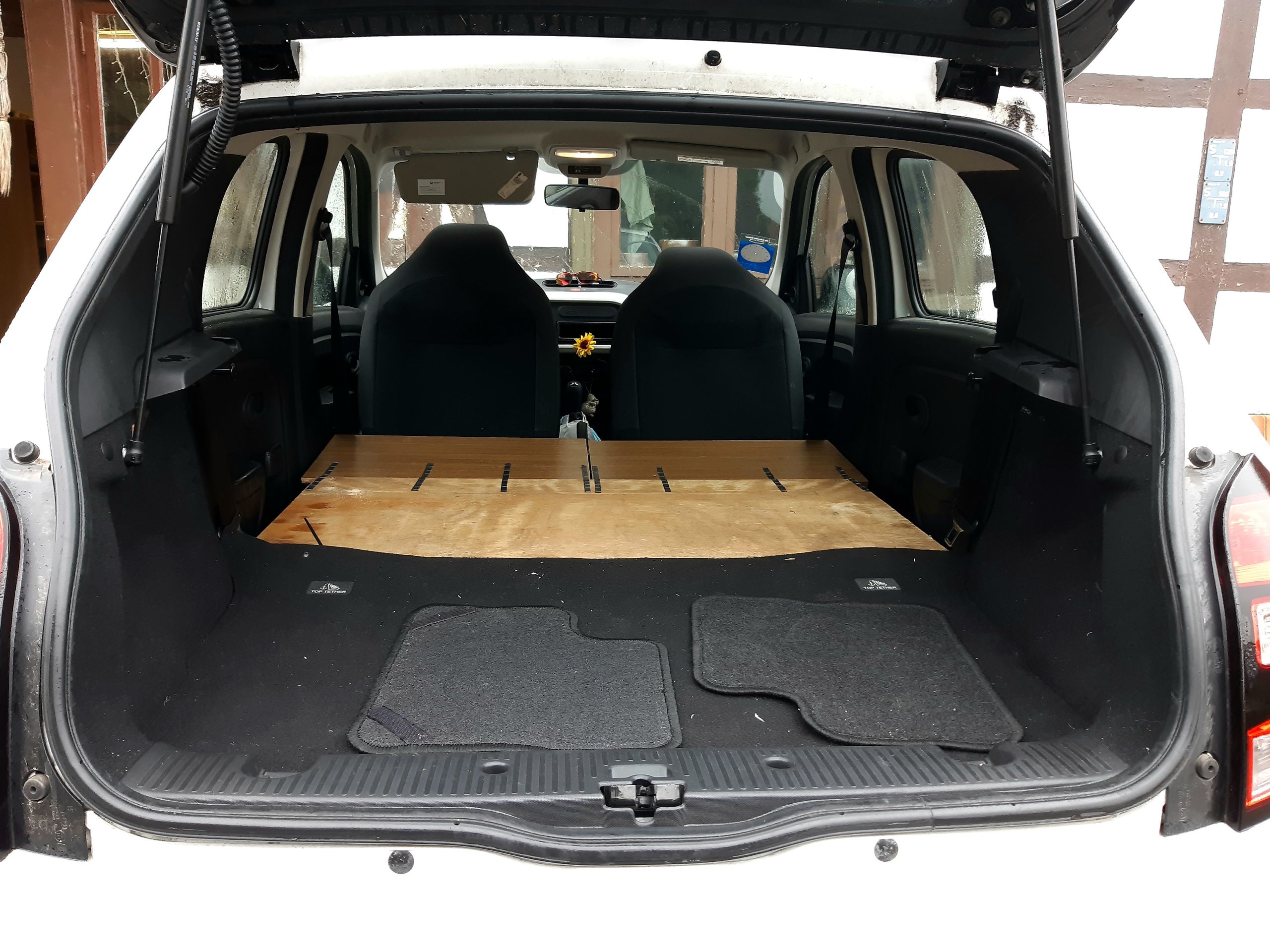
Now all that is left is to install the sleeping surface and attach the solar panel to the roof. The weather is like April, with nasty rain and a few seconds of sunshine. But my hero does not give up and is not discouraged, he measures, saws, measures again, fits in, removes, gets wet, gets wet again, modifies, installs, gets wet, and curses, curses, curses.
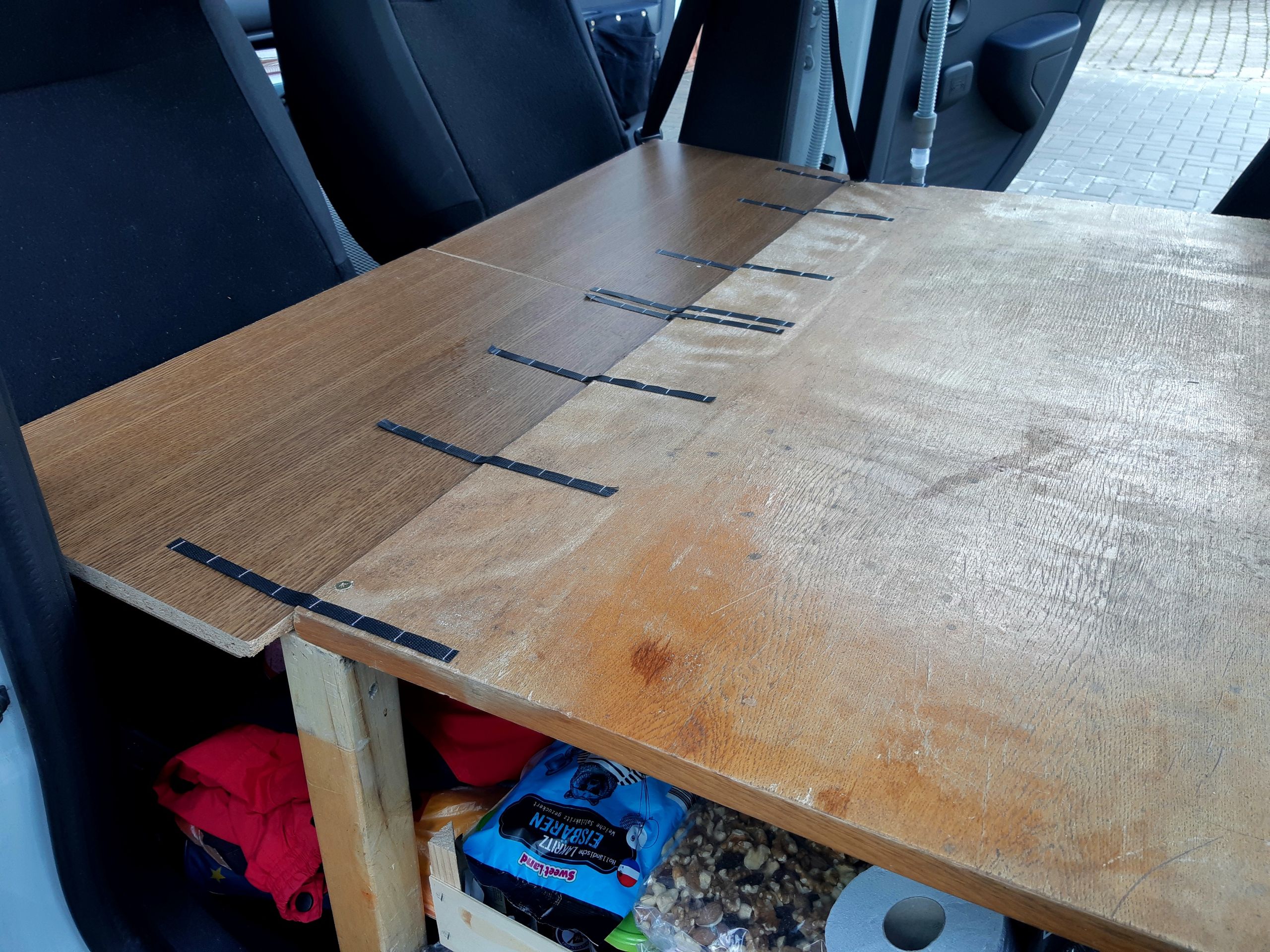
After another day of tenacious struggle with materials, weather, and circumstances, it is done: the Twingo is ready to travel!

The conversion of the rear seat has given us luxurious storage space, far removed from the space in the first Twingo, but after a rigorous sorting out of unnecessary things, we squeeze everything we need into the increased footwell of the rear seat.
On the cover of the rear-drive, there is a board on which we sleep, secured by two small pieces of wood. The seats are now pushed all the way forward and the backrests are also cranked forward, which is somewhat cumbersome because you twist yourself in a knot and eventually only reach the wheel with a long arm.
The essential, indispensable, and always necessary catering box fits in, as do the camping chairs. Perfect! Now we're ready to go.
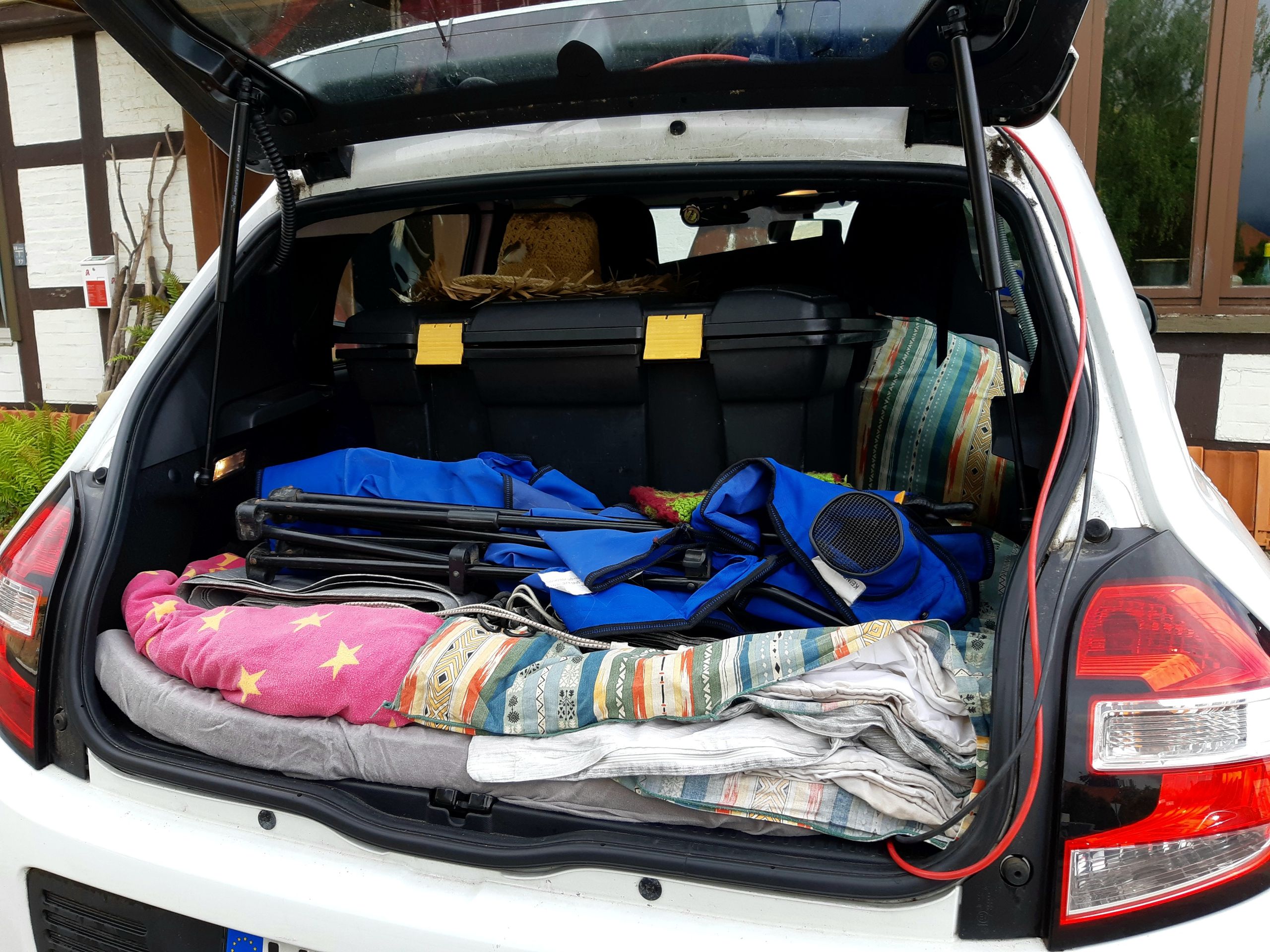
24 hours later than planned, we start our four-week trip this year. We plan a classic tour of France, so we set off late with rain heading south.
The experiences from the first night:
the conversion goes well if we make a little more effort to keep things tidy.
Sleeping is also very comfortable, there is much more sleeping space than in the old Twingo.
Rain is annoying because it drips in at the spots where the ratchet straps hold the solar panel on the roof and wets the bedding. But it's not a big deal, the rear engine heats, warms, and dries everything in a flash.
We also appreciate this in the first few days in the Alps. As soon as the sun disappears behind the peaks, it quickly gets noticeably chilly. We then sit behind our motorhome, throw the tried and tested tarpaulin over the tailgate, and enjoy the warmth that the engine continues to emit after many kilometers over high summits. When we fully unfold the tarpaulin, a small awning is created in which it is pleasantly warm.
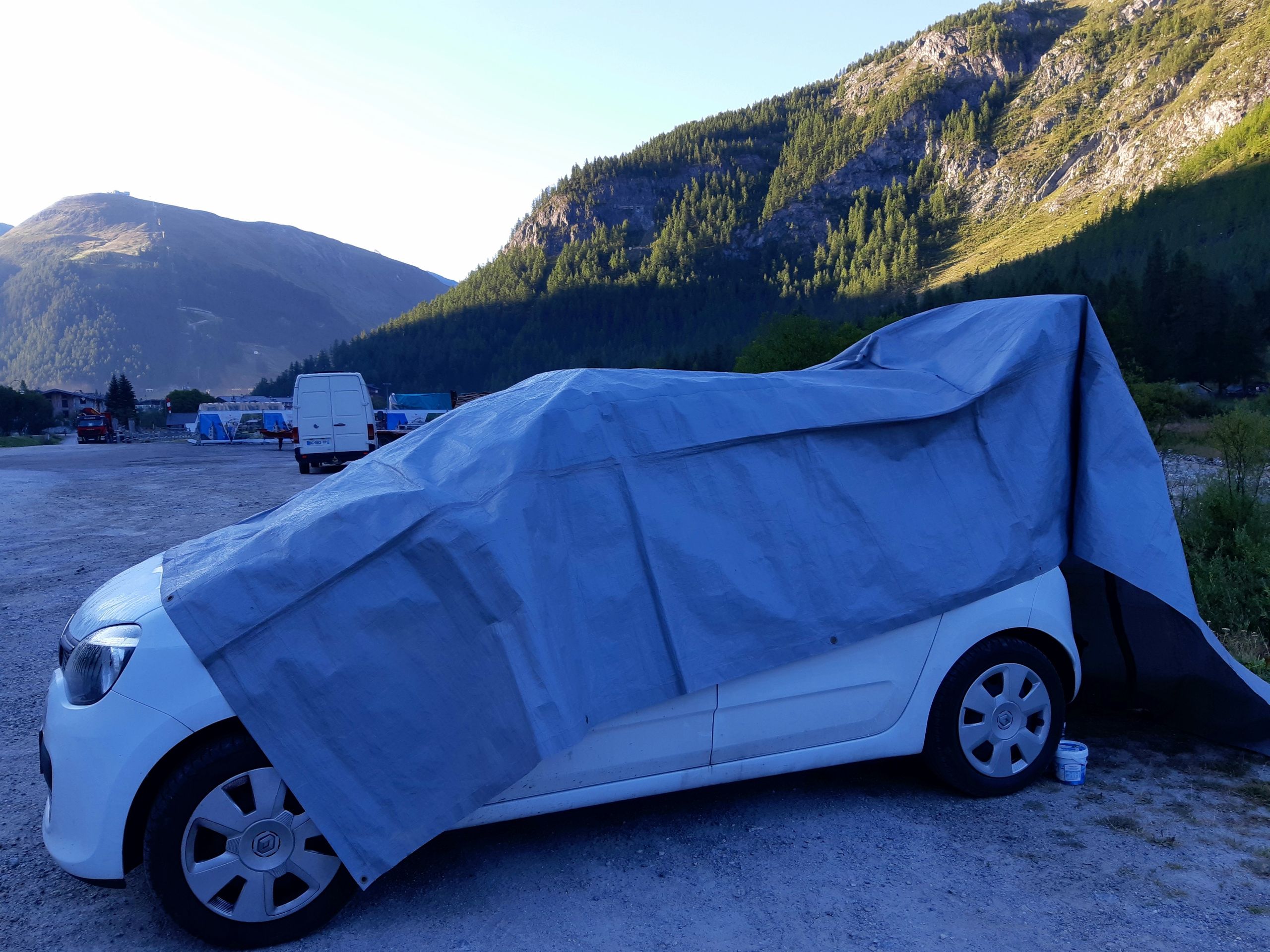
In Val d'Isere, we spend the night at an altitude of 1900m in a parking lot, the thermometer shows 4°C at night. We are not sure if it is raining, so we completely cover the Twingo with the tarpaulin to prevent any leakage at the mentioned spots. And behold: the little engine warms the interior, we have cozy bedding, and when we wake up, we are somewhat taken aback by the morning cold. Hooray for rear-wheel drive!
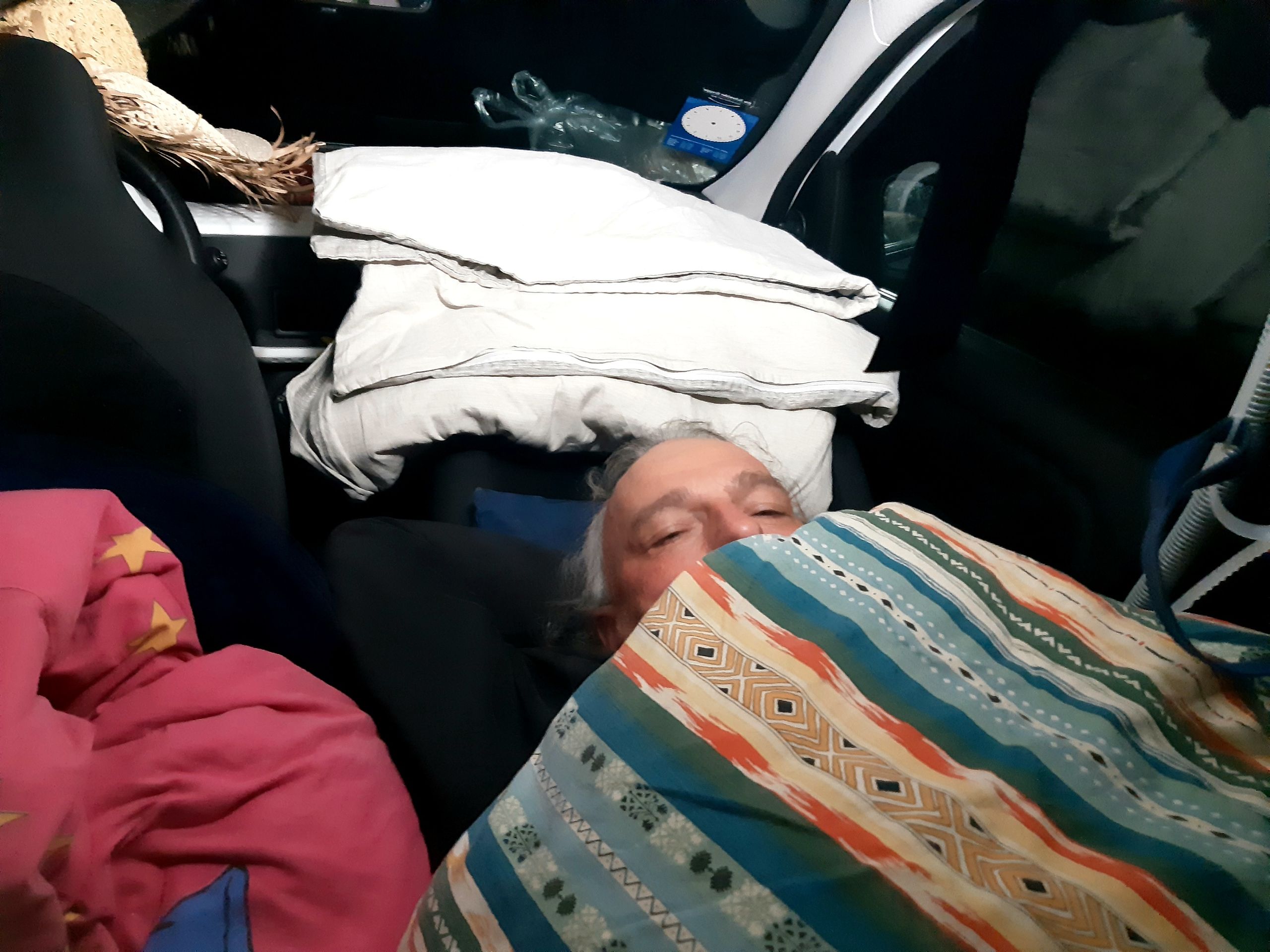
समाचार पत्रिका के लिए सदस्यता लें
उत्तर
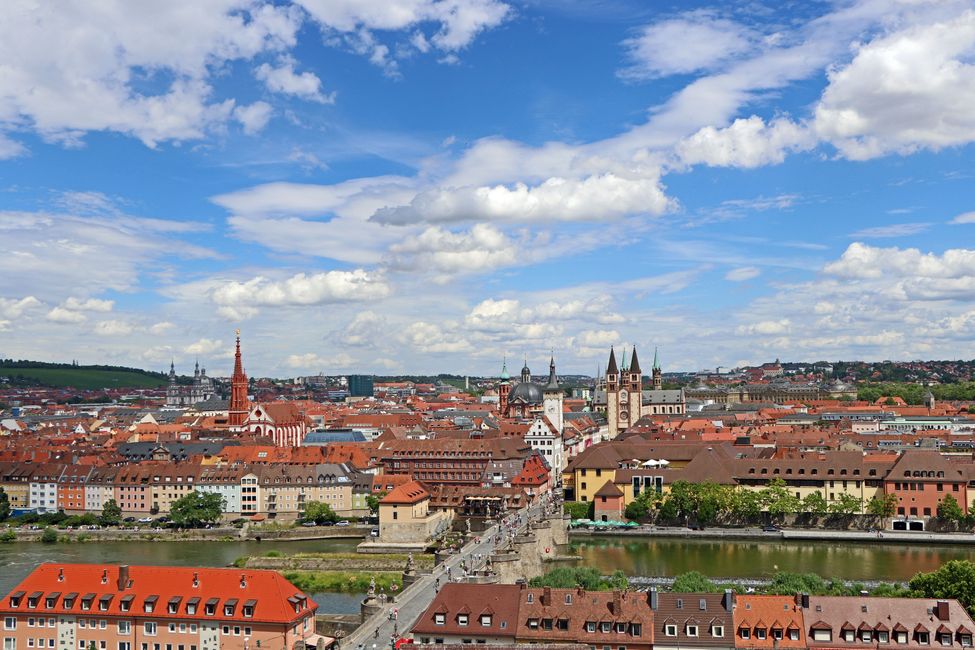
यात्रा रिपोर्ट जर्मनी

